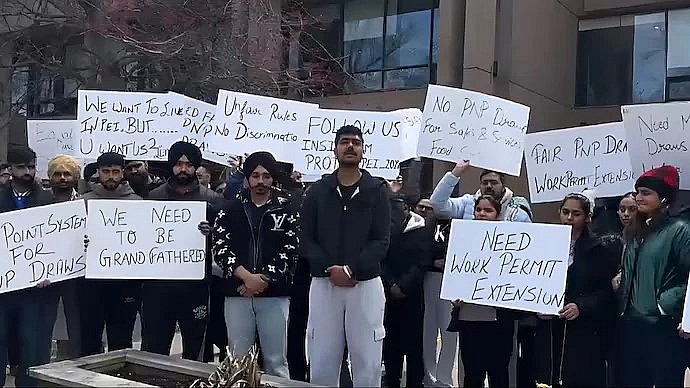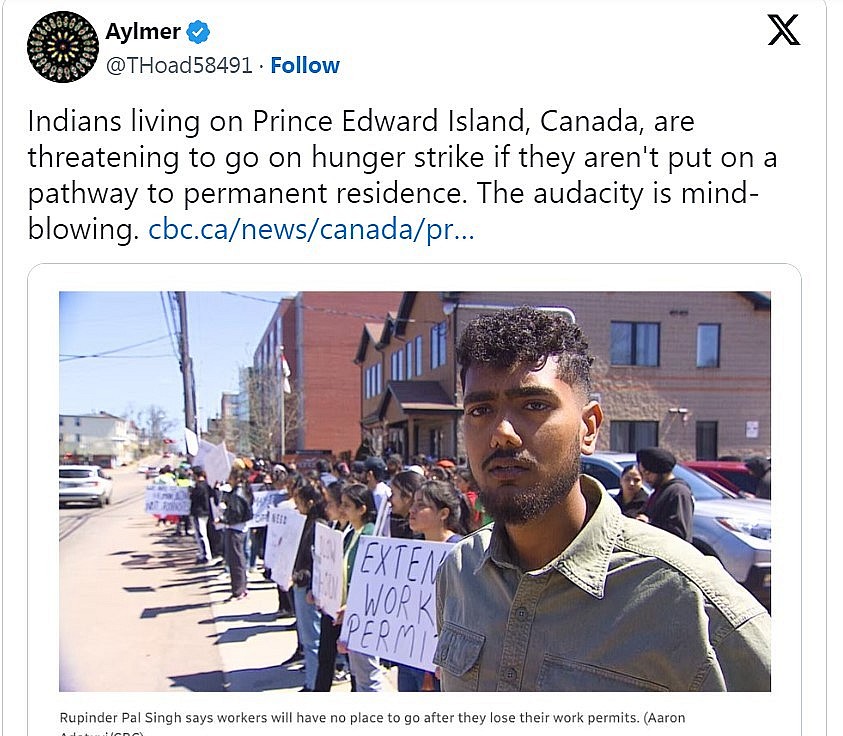Indian Students in Canada Protest Immigration Rule Changes, Threaten Hunger Strike
 |
The recent amendments to the Provincial Nominee Programme (PNP) immigration rules by PEI are aimed at reducing the number of immigrants due to the strain on the province’s healthcare and housing infrastructure. This decision has triggered a wave of protests from the Indian student community, who claim that the changes are unfair and have left them in a precarious position.
“We have three demands that we are focusing on,” said Rupinder Pal Singh, a leader of the protest, who came to Canada from India in 2023. “First, we demand to be grandfathered into the Provincial Nominee Program (PNP) system because we were already here, working on valid work permits before the new rules were implemented. It is only fair that those who were present before the changes be allowed to continue under the old system.”
Singh also highlighted the students’ call for fair PNP draws without a point system, pointing out that recent changes have excluded sectors like sales, services, food, and trucking. “We deserve the same opportunities as other sectors, and the current point system, which requires 65 points, is nearly impossible for those under 25 to achieve,” he said.
Additionally, the students are demanding an extension of their work permits. “Due to the government’s changes and economic issues, our work permits were effectively wasted, causing many of us to lose our jobs. It is only fair that our work permits be renewed to compensate for the lost time and opportunities,” Singh added.
 |
The protest began on May 9 with about 25 people and has since grown to over 300. The students are particularly upset about the PEI government’s February announcement to reduce the number of nominees for permanent residency by 25% in 2024, citing pressures on the province’s healthcare system and housing market as reasons for the cut.
In July of last year, PEI passed a law restricting postgraduate work permits to students with specific qualifications, primarily those in construction, home-building, and healthcare. This new population strategy has prioritized these occupations, leaving hundreds of immigrants in other industries, such as retail sales and service, without the prospect of extending their work permits.
Singh accused the PEI government of providing false information and exploiting immigrants. He warned that if the province fails to meet their demands, the protest would escalate to a hunger strike. “We are prepared to take drastic measures unless the province extends work permits for immigrants who are already working and seeking permanent residency,” Singh stated.
The PEI government has responded by stating that these immigration changes are temporary but has not provided a specific timeline for when they will be reversed. In the meantime, the protesting students have taken to social media to share their plight, with videos showing them holding placards reading “Unfair Rules No Discrimination”, “We want to live in PEI but you want us to leave”, “We need to be grandfathered”, and “Need Work Permit Extension”.
As the situation unfolds, the Indian student community in PEI continues to stand firm in their demands, hoping for a resolution that will allow them to stay and contribute to the province they now call home.
